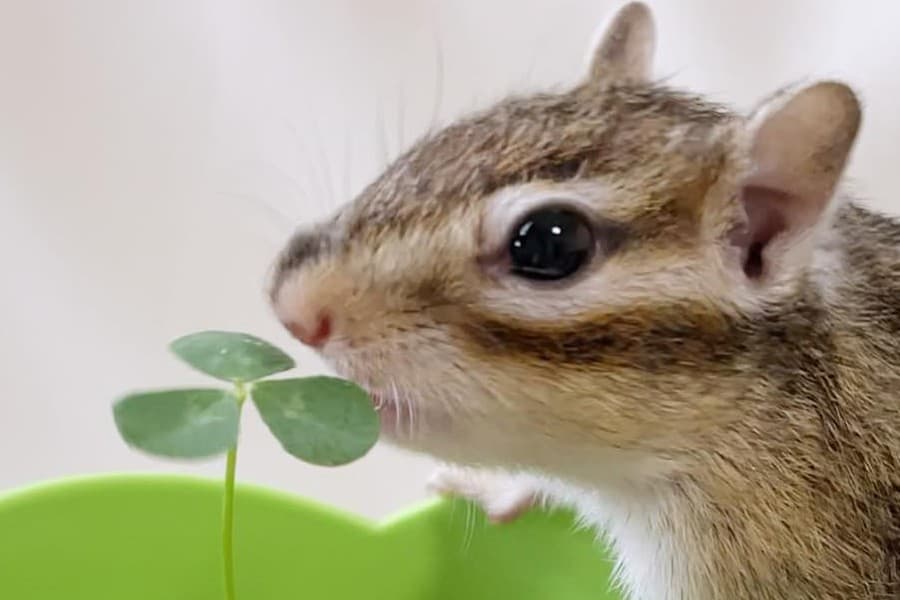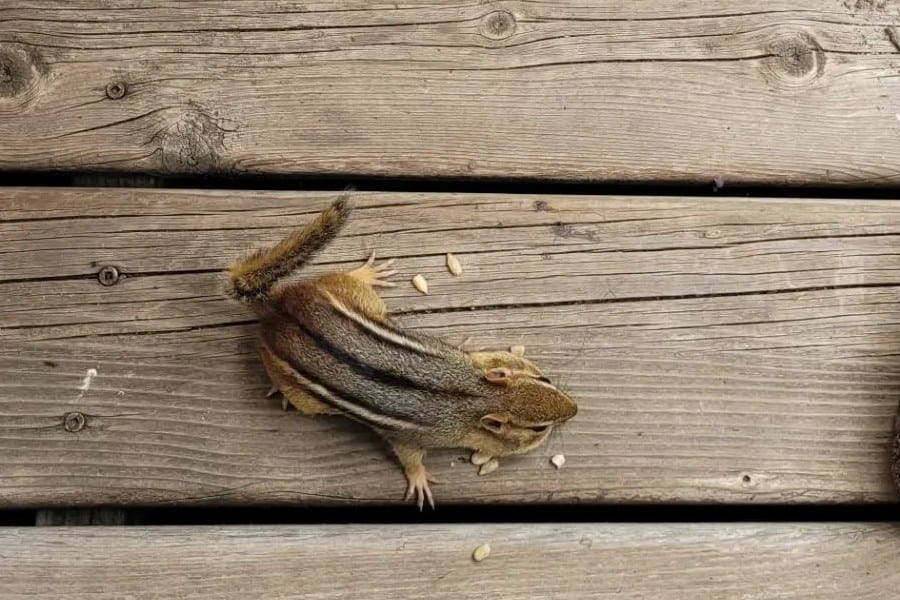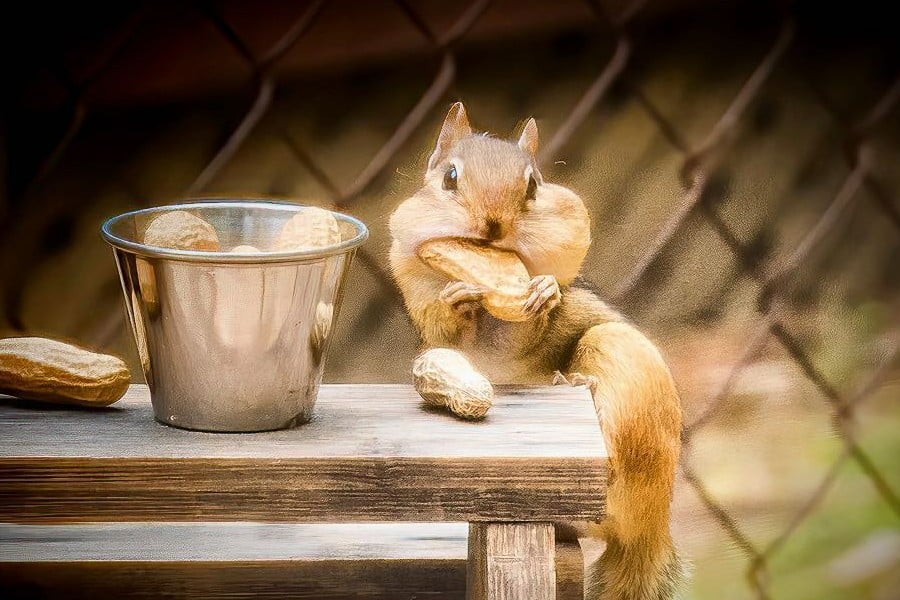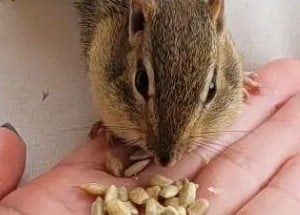These tiny creatures are fun to watch, especially when they eat something. You might have seen them taking food in their little paws and stuffing their cheeks with a treat. It’s cute until a chipmunk starts pecking around in your garden. Agree it’s frustrating when you’ve spent a lot of time beautifying your yard. One fine morning you go outside and see that someone has tripled the chaos in your garden.
To effectively control rodents, you need to learn a lot about them, including their food preferences. What do chipmunks eat in the garden? You will know from this article.
[wpsm_titlebox title=”Guide on Keeping Chipmunks From Eating in Your Garden” style=””main””]
- What do chipmunks eat in the garden? Get to know their eating habits.
- Find out that chipmunks eat flowers.
- Determine what plants chipmunks hate.
- Learn about the properties of plants that chipmunks don’t like.
- Plant them in your garden to let the rodents know they don’t belong here.
[/wpsm_titlebox]
What Do Chipmunks Eat in the Garden?

You can’t stop chipmunks from living in your yard. You can try to prevent them in every way, but sometimes they can come back. Therefore, you should accept their existence and try to make your garden as unattractive to rodents as possible.
Before decorating your yard with plants, find out which ones are almost guaranteed to be damaged by pests.
Do chipmunks eat fruit?
Chipmunks love to eat berries and fruits. They like to eat anything that contains cellulose. For fruits, they prefer apples, pears, plums, and peaches. The chipmunks’ favorite diet includes melons. They do not mind eating oranges and bananas. As for berries, rodents will gladly eat strawberries, blueberries, blackberries, and cranberries.
Do chipmunks eat vegetables?
Chipmunks prefer to eat probably all the vegetables we normally have in our diet. They won’t turn down potatoes, cucumbers, tomatoes, yams, cauliflower, and zucchini. If you want to plant a few bushes of lettuce, you can be sure that a chipmunk will come to eat them. Peas and green beans contain a lot of nutrients for the rodent, so it is unlikely to pass by if it sees them on your property. Corn and mushrooms are also on the list of these rodents’ gastronomic preferences.
Do chipmunks eat flowers?
Chipmunks eat plants, and garden flowers are no exception. Fortunately, there are flowers that rodents don’t like. But those that a rodent will gladly munch on make an impressive list. Chipmunks’ favorite flowers are:
- Tulips. Especially, rodents love their bulbs. If a chipmunk sees this flower in your garden, chances are it will dig the bulb out of the ground and eat it. If it doesn’t, the pest might eat the bud before it even opens;
- Any sprouts. Rodents can’t resist savoring tiny green sprouts. You either need to be resourceful to protect them or give it up;
- Sunflower. This plant is not only beautiful and adds bright colors to any place. It is a plant that is much loved by rodents. If you plant a sunflower in hopes that you can eat the personally grown seeds, chances are a chipmunk will beat you to it;
- Coreopsis. You might not be the only one who likes these flowers. Chipmunks also like to cleanly destroy these plants;
- Pansies. These flowers might not keep you happy with their colorful buds for long. One day, you might find that only ruffled stems are left of the beautiful flowers;
- Daisies. These charming plants are one of the rodents’ favorite treats.

Chipmunks’ eating habits include not only the flowers or bulbs themselves, but they also like to hunt for seeds. The best thing you can do for your garden if you have a lot of flowering plants is to cut back the buds that have already bloomed. Yes, it needs to be carefully monitored, but that way, you won’t give the buds a chance to escape to seed. You can keep them so that you can sow new flowers later.
What Plants Will Chipmunks Not Eat?
Chipmunks do not like plants with a pungent smell, so any excessively fragrant plant will scare them away:
- French marigolds. These plants are a great decoration for any yard. They are planted in the garden, near the house, along the perimeter of the yard, or even in the vegetable garden. The flowers are said to be able to repel chipmunks because of their strong odor. These flowers are sometimes planted near species that are vulnerable to insects;
- Daffodils. Although rodents love to eat bulbs, and daffodil is a bulbous plant, chipmunks stay away from them. Narcissus roots are very bitter and toxic to pests;
- Grape hyacinths. The flowers resemble bunches of grapes in their appearance. They are also bulbous plants. Although they have a pleasant smell for humans, chipmunks find it too pungent and do not want to approach them;
- Сommon сamas. Another perpetrator of strongly smelling plants. If you plant these bulbous flowers in your yard, you will enjoy their sight and smell. Rodents, in turn, will stay away from them;
- Summer snowflakes. White chickens are similar to a bell and will be a gentle decoration of your yard. They smell nice; the odor is somewhat reminiscent of chocolate. However, these flowers contain a high concentration of lycorine, which is toxic to rodents;
- Lavender. We love lavender for its beautiful purple flowers and distinctive smell. You can plant it in your garden to pick and dry later. It is best to pick fresh lavender early in the morning when it is the most concentrated. Its pungent scent deters insects and rodents, including chipmunks;
- Sage. Its strong smell will scare away chipmunks. You can grow this plant and then use it in the preparation of various dishes or for brewing medicinal tea;
- Peppermint. It has many useful properties, like sage. However, this plant is not useful for rodents. The strong smell of menthol irritates their respiratory tract.
Сhipmunks do not eat bushes such as Butterfly Bush. Petunia is one of the popular plants for the garden that you can safely plant. Rodents are not likely to respond to its scent.
FAQ About What Chipmunks Eat

Now you know which plants chipmunks hate and which ones they would love to eat in your garden. You will find answers to other popular questions in this section. This information can be useful for controlling chipmunks.
What is a natural deterrent for chipmunks?
To protect your flowers from chipmunks, you can carefully place animal fur between them. The rodents will think the predator is quite close and won’t want to come near. You can make a solution of water and cayenne pepper and treat the area around the beds.
Will rubber snakes keep chipmunks away?
All rodents, including chipmunks, are afraid of snakes. You can buy an inexpensive dummy and put it between flowers. The pest should smell the danger and avoid the place where the snake lies.
Can chipmunks damage furniture in the garden?
Chipmunks will not harm your garden furniture, even if it is made of wood. Rodents like to climb trees but not chew on them. They come to your garden for one purpose: to eat. Therefore, their attention will be attracted to flowers, herbs, nuts, and fruit.
You Own Your Garden
Chipmunks are common in almost all states in North America. Therefore, if you own a garden, the chances of seeing a rodent among your plants one day are very high. You won’t be able to 100% protect your area from rodents. However, you can start growing plants or protecting them with natural remedies to leave no room for chipmunks to snack in your garden.
What plants do chipmunks eat in your garden? How do you control these rodents?

